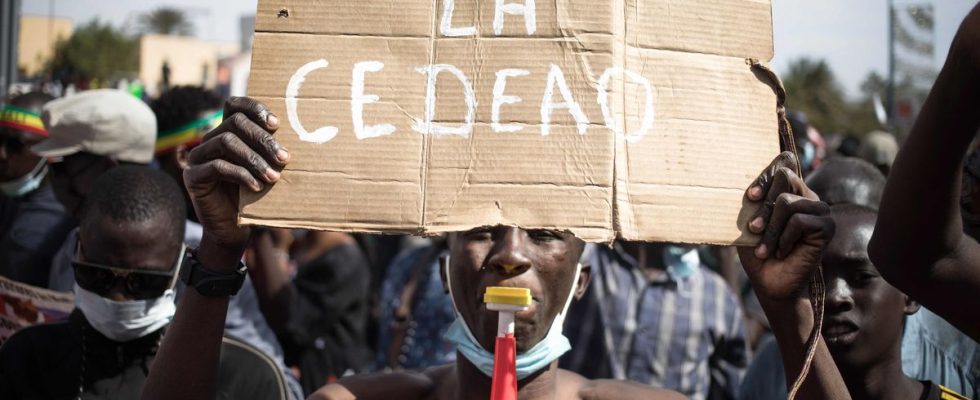The Economic Community of West African States is shaken. The military regimes in power in Burkina Faso, Mali and Niger have in fact decided to withdraw their countries, “without delay”, from ECOWAS, they announced on Sunday in a joint press release.
On Monday, Mali and Burkina Faso sent the 15-member subregional organization “formal notification” of their withdrawal. No information has yet been published on the Niger side. With this choice, the juntas take the risk of compromising free movement and delay the return of civilians to power.
A standoff since the coups
ECOWAS opposed the coups that successively brought the military to power in these three countries, imposing heavy economic sanctions on Niger and Mali. In August, it went so far as to threaten military intervention in Niger to restore constitutional order and free ousted President Mohamed Bazoum.
Dialogue is practically broken between the organization and the regimes of Bamako, Ouagadougou and Niamey, who created the Alliance of Sahel States (AES) and accuse their neighbors of acting under the influence of “foreign powers”, in firstly France, a former colonial power in the region.
The return to power of compromised civilians
Elections were in theory planned in Mali and Burkina Faso in 2024, supposed to ensure the return to civilian government, a prerequisite required by ECOWAS to lift its sanctions and restore these countries to its decision-making bodies. But supporters of military regimes want to extend the duration of transitions, citing the anti-jihadist fight.
ECOWAS guarantees that citizens of member countries can travel without a visa and establish themselves in member countries to work or reside there. These withdrawals therefore arouse the concern of hundreds of thousands of nationals of these countries, individuals or traders. The three landlocked countries of the Sahel and their main coastal economic partners such as Senegal and Côte d’Ivoire are, however, members of the West African Economic and Monetary Union (UEMOA, 8 countries), which also guarantees in principle “freedom of circulation and residence” for West African nationals, as well as customs clearance of certain products and the harmonization of tariffs and standards, following the example of ECOWAS.
The consequences of a withdrawal could, however, be more marked on the borders of Niger and Nigeria, countries not belonging to UEMOA. The West African economic giant represents more than half of ECOWAS’ GDP and is Niger’s leading economic partner in the region. The 1,500 km of border which separate the two states are, however, poorly controlled and prey to attacks by armed groups. A significant portion of flows thus escape customs controls.
Notice not respected
However, a legal point raises questions. ECOWAS texts provide that a request must be submitted in writing one year in advance. “These states will have to find some form of agreement and negotiations will go in the direction of finding the means to make this withdrawal progressively,” estimates Fahiraman Rodrigue Koné, Sahel specialist at the Institute for Security Studies (ISS). As jihadist groups advance in the Sahel and to the margins of coastal states, “the region is fragmenting, becoming the object of stronger geostrategic competition, and this is not good news for stability,” further warns the researcher. .
Above all, the strong criticism formulated by these regimes and their supporters against the CFA franc, the common currency of the WAEMU member countries, could also lead the AES countries to leave this organization, and to renounce the free movement of goods and people while awaiting the emergence of an African continental free trade area, still at the project stage.

